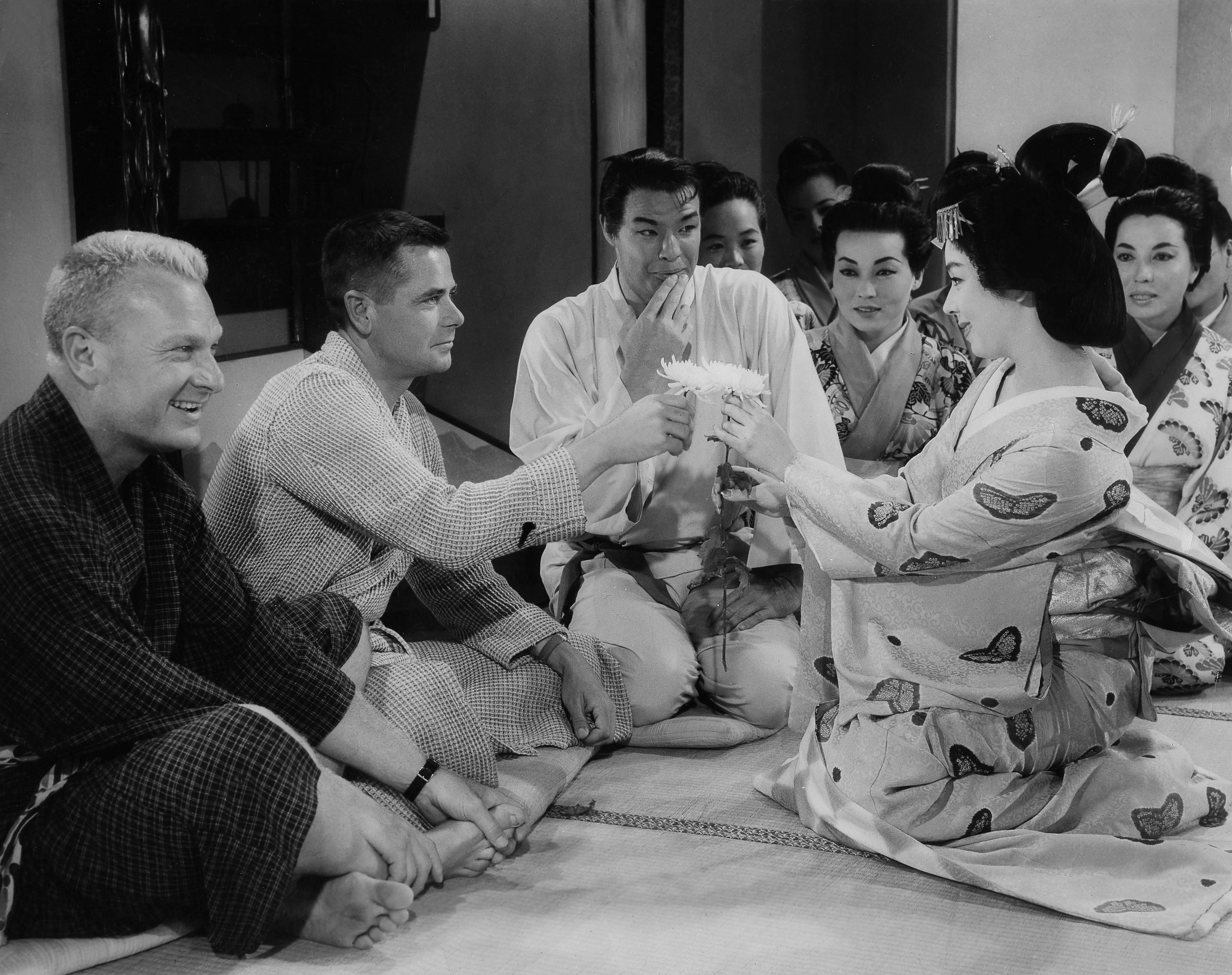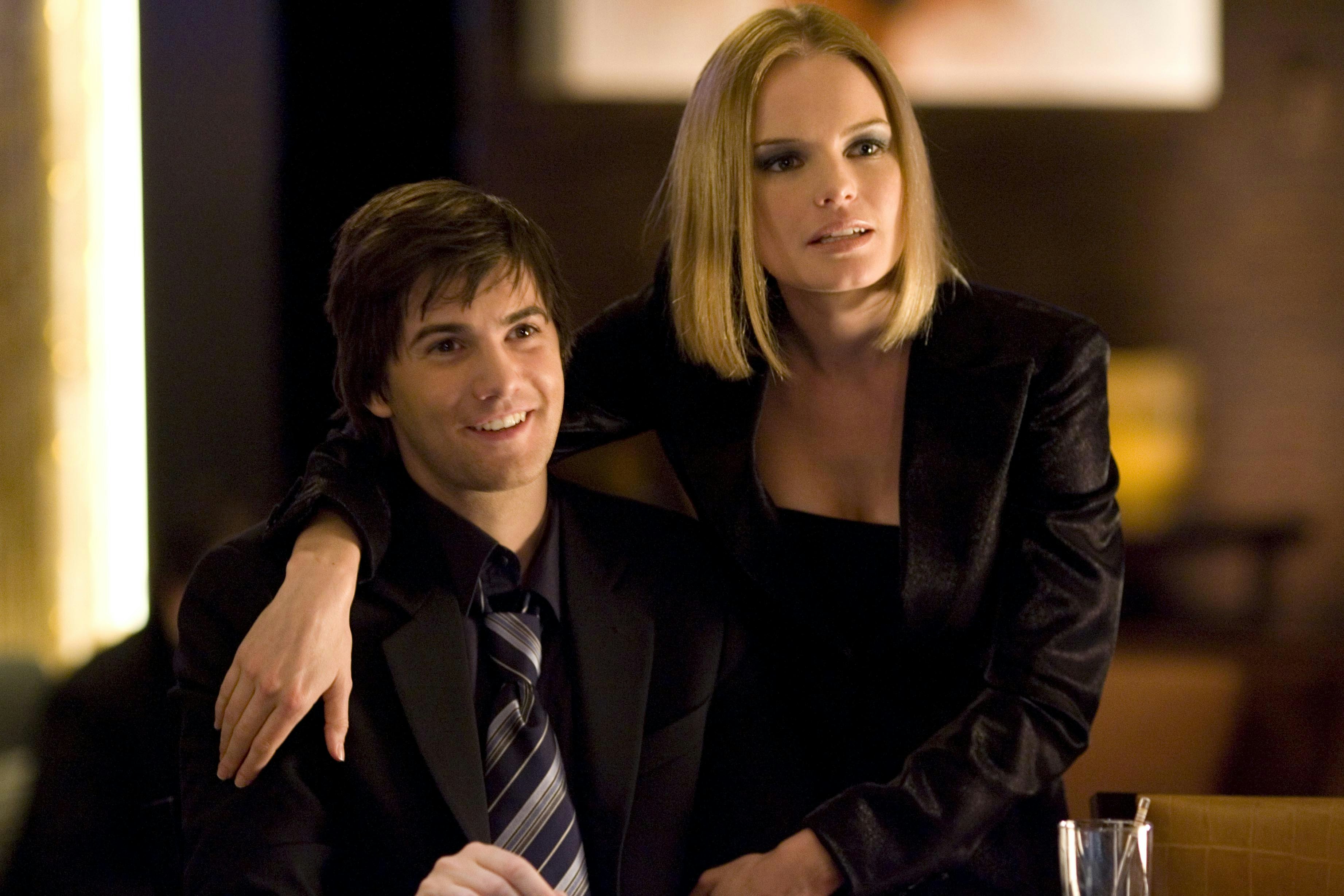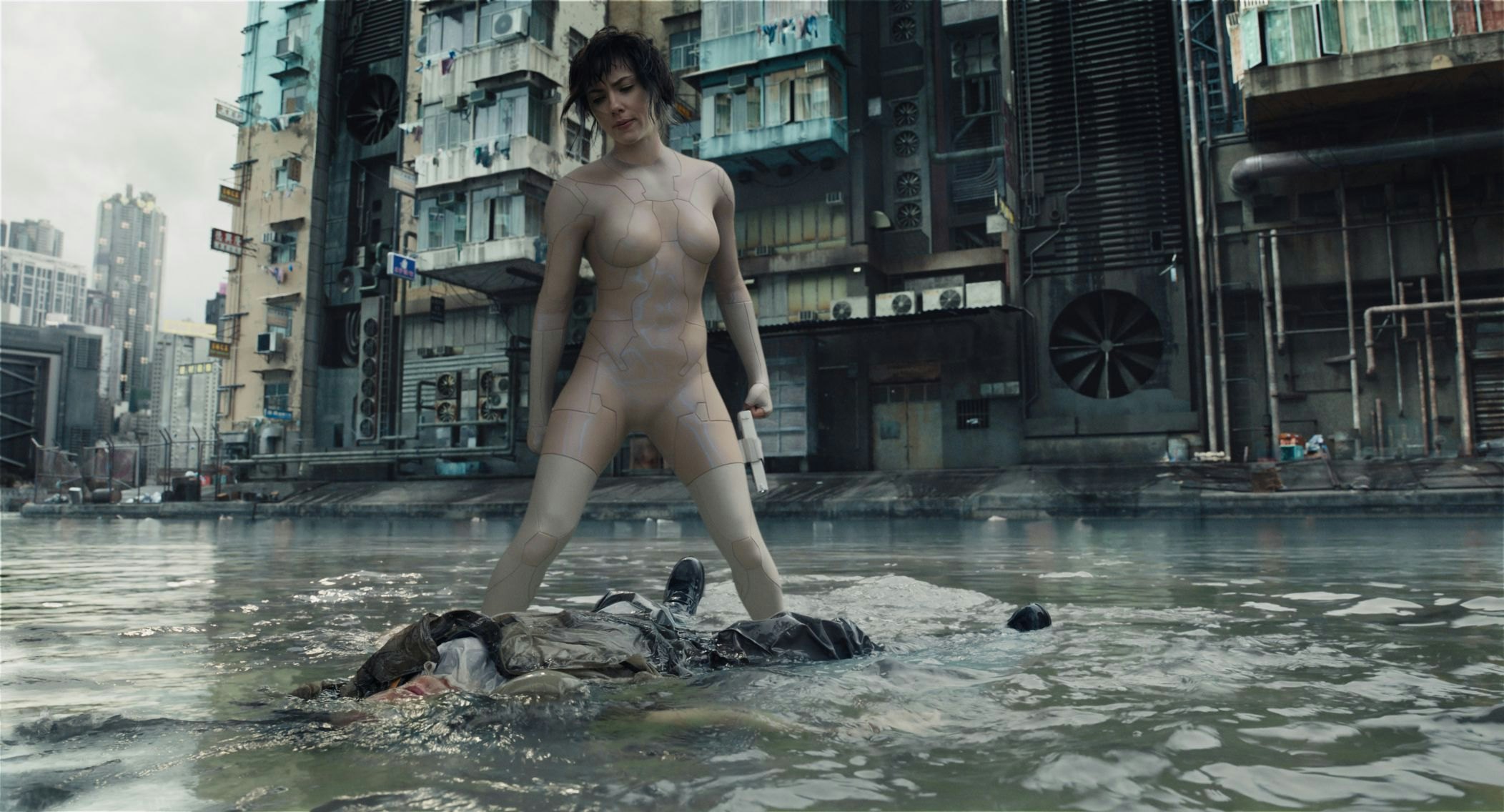
Five years ago, Ghost in the Shell became an important release that changed Hollywood. As an English-language adaptation of the influential Japanese anime and manga, the film has a legacy, just one its filmmakers didn’t intend.
Ghost in the Shell opened on March 31, 2017. Despite boasting star power in Scarlett Johansson, its paltry box office of $169.8 million was matched only by the lethargy of critics, who called it “flat, droning” and “lacking in soul.”
WHAT’S YOUR FAVORITE TIME-TRAVEL MOVIE? Click here to help us rank all the ones on Netflix.
Half a decade later, Ghost in the Shell should be a footnote. But its failure marked a change to the industry’s racist tradition of whitewash casting, where white actors play minority roles or characters are rewritten to be white under the auspices of mass market appeal. While Ghost in the Shell wasn’t the last movie to whitewash an Asian character, its radioactive wreckage lingers in the air. It’s a potent warning about a racist practice that, before 2017, was just Hollywood doing business.
“That was the moment a lot of people clicked, like, ‘This is unacceptable,’” Phil Yu, creator of the Asian-American blog Angry Asian Man and co-author of Rise: A Pop History of Asian America from the Nineties to Now, tells Inverse. “It was one of Hollywood’s last gasps when it came to people being tolerant of whitewashing. After Scarlett Johansson, people began saying, ‘We’re not going to take it anymore.’”

“It’s kind of a gag now,” sociologist Dr. Nancy Wang Yuen, author of Reel Inequality: Hollywood Actors and Racism, says to Inverse, observing how the movie and even Johansson herself are punchlines on social media. Revisit a tweet from 2019: “Colin Jost was actually in love with an Asian-American woman ... but the producers told him Scarlett Johansson would bring in more wedding guests.”
Yuen says the effect Ghost in the Shell had on the industry was “immediate.”
“Whitewashing was totally fine until that point. After [Ghost in the Shell], because of social media uproar, protests, and poor box office returns, studios have become concerned about representation of Asians.” Yuen now consults on productions that query her on efforts to cast Asian actors.
The change began in 2014 when Johansson, whose action vehicle Lucy enjoyed tremendous box office success, was cast in Paramount Pictures’ Ghost in the Shell. An adaptation of the manga by Masamune Shirow, the story follows Major Motoko Kusanagi, an android special agent who questions her humanity, or lack thereof.
After Johansson’s casting was announced, negative sentiment from the Asian-American community was swift. Petitions were made, YouTube explainers went up and, of course, hashtags were tweeted. #whitewashedOUT, from Nerds of Color editor-in-chief Keith Chow and comedienne Margaret Cho, consolidated stories of Asian-American actors overlooked for roles, and educated the public on whitewashing and its power to dehumanize an entire group.
In February 2017, filmmaker Chewy May released “Ghost in the Shell PSA,” a short film depicting a young Asian girl in a comic book store, where she’s inundated by white superheroes. She finds joy in the Ghost in the Shell manga, until she’s crestfallen when confronted by the poster for the movie.
“That goes into the question of why representation is important,” Casey Mendoza, a pop culture reporter for Newsy, tells Inverse. “It's important because we need to be seen as human, rather than caricatures or stereotypes or commodities.”

The movie was a missed opportunity for an Asian actor to lead a Hollywood blockbuster, thereby rendering them a star equitable to Johansson.
“How can you have the ‘Best Actor’ for a role when you've never had the opportunity to see Asian actors in this role?” asks Yu. “The system is broken and busted.” Even now, Yu says, “The most talented Asian actor does not get the same opportunities from the jump to build a career and become a star.”
While the original 1995 Ghost in the Shell anime film is beloved — James Cameron is a fan, and the Wachowskis cite it as an influence for The Matrix — the release of the Hollywood remake prompted Asian-Americans to speak against the historical exclusion of Asian talent, which Phil Yu says has been in place “since the beginning of making movies.”
“Every generation has their sticking point, yet it kept happening,” Yu says, citing films like Breakfast at Tiffany’s (with Mickey Rooney playing the cartoonish Mr. Yunioshi) and the 2008 drama 21, which reimagined the real-life story of Asian-American college students. “Studios brushed criticism aside. Like, ‘Who cares? It’s just a movie,’” Yu says.

It wasn’t until a “confluence” of moments, like #OscarsSoWhite and #StarringJohnCho, led to “an increased consciousness about diversity and inclusion.” “When this movie comes along in 2017, it’s on people’s minds,” Yu says. “We don’t always have to accept the way Hollywood depicts or excludes racial minorities.”
While any movie could have finally informed the public, Ghost in the Shell “seemed like the perfect example to hold up,” Yu says. “Maybe the fact that Scarlett Johansson is such a huge star allowed it to have the legs that it did.”
There’s since been greater visibility of Asian actors in mainstream productions. The 2018 rom-com Crazy Rich Asians was a massive box office hit. On The CW, a modern remake of Kung Fu, which originally starred David Carradine as a Chinese monk, now features actress Olivia Liang. The summer of 2021 saw the release of two Asian-led action movies: Snake Eyes: G.I. Joe Origins with Henry Golding, and Shang-Chi and the Legend of the Ten Rings with Simu Liu and Tony Leung.

Progress continues, but Asian-Americans recognize how much has changed in only five years.
“It happens where it’s going to happen,” says Phil Yu. “Who knows what’s going to pick up people’s attention? We are in a constant battle of who gets to tell stories. Who gets to tell stories about us? Do we tell our stories? For too long, it was somebody else creating stories about us. It’s always been about having a voice, and having agency over how our stories get told.”
Adds Yu, “Invisibility has consequences.”







